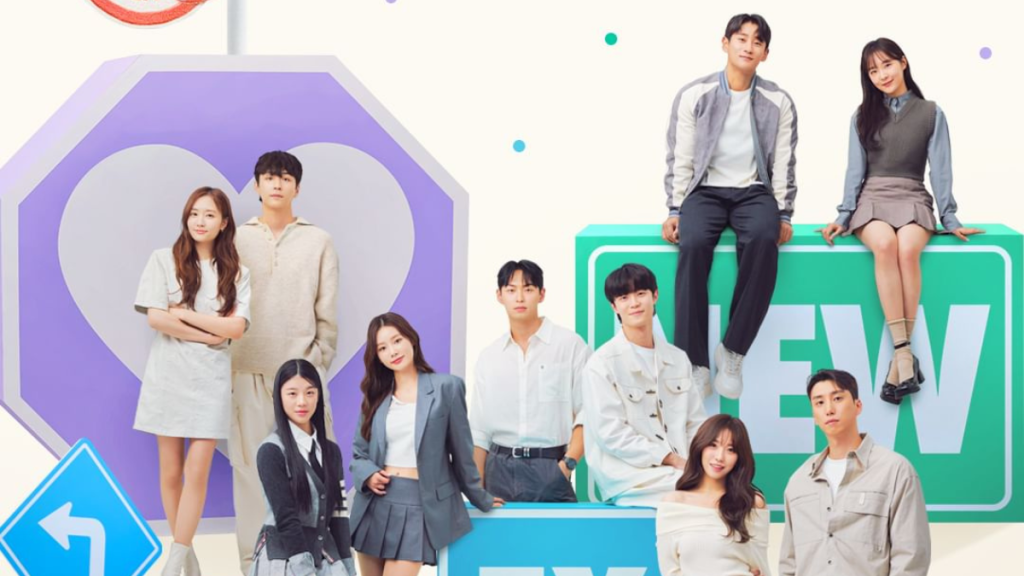Millennials often receive a bad rap. Every generation faces challenges, but somehow, millennials get blamed for all that’s wrong in the world. Can we pass some of the judgment around? There may be some merit to the accusations, but we’re going to question some of the things that shouldn’t be leveled against millennials in particular. Let’s get to it!
Diamond Industry
 Image Credit: Fruit Cocktail Creative/Shutterstock.
Image Credit: Fruit Cocktail Creative/Shutterstock.
I’m not sure where this idea gained steam, as reports as recently as 2020 state that millennials and Gen Z account for the largest group of diamond consumers. Nonetheless, even if millennials are turning away from valuing diamonds as a must-have, this criticism should be to their credit. It’s superficial to be so attached to material possessions as a sign of prosperity anyway. Millennials prioritize meaningful experiences, valuing connections over material symbols, prompting a change in societal values.
Traditional Retail
 Image Credit: Shutterstock.
Image Credit: Shutterstock.
Millennials almost always bear the brunt of aspersions when it comes to the shift from retail to online shopping. However, the blame overlooks the broader societal change influenced by technology. E-commerce growth aligns with advancements, impacting consumer habits beyond generational boundaries.
Napkins
 Image Credit: Victorgrigas, CC BY-SA 3.0, via Wikimedia Commons.
Image Credit: Victorgrigas, CC BY-SA 3.0, via Wikimedia Commons.
The decline in paper napkin sales is unfairly placed on millennials, but their choice for sustainability is commendable. Millennials actively seek eco-friendly alternatives, contributing to a positive environmental switch. It challenges the notion that their preferences are solely responsible for the drop in sales.
Homeownership
 Image Credit: Wasan Tita/Shutterstock.
Image Credit: Wasan Tita/Shutterstock.
Here’s an example of not seeing the forest for the trees. It’s not that millennials are disinterested in homeownership. Economic challenges and changing priorities shape their decisions. Wide-ranging economic factors beyond individual preferences contribute to the delay in millennials achieving traditional homeownership milestones.
Divorce Rates
 Image Credit: LightField Studios/Shutterstock.
Image Credit: LightField Studios/Shutterstock.
Scapegoating millennials for poor marriage rates is either disingenuous or misinformed at best. Divorce rates have declined since before they were born, and this phenomenon is intricately connected to societal shifts, evolving values, and economic dynamics shaping the sweeping context of changing relationship norms.
Cable TV
 Image Credit: mikemacmarketing, CC BY 2.0, via Wikimedia Commons.
Image Credit: mikemacmarketing, CC BY 2.0, via Wikimedia Commons.
This is the equivalent of avid horseback riders lamenting people selling their horses to buy a car. It’s just more convenient! The rise of streaming services linked to millennials results from technological advancements and changing viewing habits. Who doesn’t have a preference for convenience and innovation?
Traditional Breakfast Cereals
 Image Credit: Shutterstock.
Image Credit: Shutterstock.
The decline in sales of traditional breakfast cereals isn’t solely on millennials — it aligns with health-conscious choices and a demand for diverse breakfast options. Millennials, like others, are adapting to varied dietary choices, influencing the overall breakfast food industry.
Golf
 Image Credit: Active Magazine – CC BY 2.0/Wiki Commons.
Image Credit: Active Magazine – CC BY 2.0/Wiki Commons.
If this is true, can you blame them? On a serious note, although golf is not everyone’s cup of tea, the decline in golf’s popularity isn’t on millennials. Changing interests and lifestyles across generations contribute to this trend in recreational activities.
Beer
 Image Credit: monticello/Shutterstock.
Image Credit: monticello/Shutterstock.
Accused of favoring craft beer over traditional brands, maybe millennials can be charged with being products of evolution. They’ve also become more cultured than the generation before them. Is it illegal for taste preferences to change or to have a growing appreciation for different flavors and unique brewing styles?
Casual Dining Chains
 Image Credit: Murat Tanyel/Wikimedia Commons/CC BY-SA 2.0.
Image Credit: Murat Tanyel/Wikimedia Commons/CC BY-SA 2.0.
Ah, yet another case of millennials exercising their right to indulge and be more particular than those who came before them. Again, the decline in traditional casual dining is a result of changing tastes and a collective desire for unique dining experiences. Millennials are more into researching the foods they put into their bodies, and they don’t want to “just be grateful for what they have” if there’s an opportunity to get cleaner, more organic foods.
Print Newspapers
 Image Credit: Jack Weir (1928-2005), Public domain, via Wikimedia Commons.
Image Credit: Jack Weir (1928-2005), Public domain, via Wikimedia Commons.
Why would I want to go to a store and buy a newspaper when I can find the same information on my phone without going anywhere? The accelerated switch to digital media is just what happens over time. Millennial adaptability to new media formats for consuming information is in line with the natural progression of how everything around us is becoming digitized.
Department Stores
 Image Credit: Michael Rivera – Own work, CC BY-SA 4.0/Wiki Commons.
Image Credit: Michael Rivera – Own work, CC BY-SA 4.0/Wiki Commons.
This one may have some merit, but you have to admit, being unique in a sea full of people isn’t a negative. Right? The preference for online shopping and unique, niche brands is a factor when it comes to millennials and traditional department stores. Also, people, in general, lead busy lives and may not have the time to walk through a department store.
Cars
 Image Credit: Elliott Cowand Jr/Shutterstock.
Image Credit: Elliott Cowand Jr/Shutterstock.
Some argue that millennials have negatively impacted the car industry by showing a preference for urban living, ride-sharing services, and environmentally conscious modes of transportation. The trend towards a sharing economy and a focus on sustainability have challenged traditional automakers to adapt to changing consumer behaviors and preferences.
Fabric Softener
 Image Credit: Alf van Beem, Public domain, via Wikimedia Commons.
Image Credit: Alf van Beem, Public domain, via Wikimedia Commons.
Really? Out of all the things going wrong in the country, boomers care about fabric softener? I had to ask multiple people from this age group their thoughts because this concern seemed ridiculous at face value. A few of them said they also think it’s nonsensical to buy fabric softener because it’s a frivolous expense. Some took cheap shots and said millennials want to be trendy, and in reality, they don’t use it because they don’t know what the product is for. Simply put, no one wants all those harmful chemicals on their skin, and we’re sorry if that offends boomers (not really).
Gyms
 Image Credit: Shutterstock.
Image Credit: Shutterstock.
According to the baby boomers, millennials have committed the ultimate sin of shunning traditional gyms. Heaven forbid they embrace technology and personalized workouts instead of sticking to the dumbbells-and-treadmills routine. Apparently, fitness trackers, heart rate monitors, and smartwatches are sacrilegious tools in the eyes of the elders. And don’t even mention those apps that log workouts and connect gym buddies — who needs that when you can lift in peace, right? Of course, expecting gyms to prioritize personalization and flexibility is too much!
Movie Theaters
 Image Credit: Shutterstock.
Image Credit: Shutterstock.
As an avid moviegoer, this one hurts. There’s nothing like going to the movies and all the traditions that come with it. However, I understand the allure of streaming services, and I know that it’s not all on millennials. The impact on standard theaters is shaped by the convenience and diversity offered by streaming services and home entertainment options.
Home Décor
 Image Credit: Shutterstock.
Image Credit: Shutterstock.
I’m not sure if this is a positive or negative, but millennials’ influence on home décor is undeniable. Their preference for minimalism and affordable alternatives contributes to changing trends, reflecting both practicality and a shift towards a more budget-conscious and functional approach to interior design.
Home Cooking
 Image Credit: rblfmr / Shutterstock.com.
Image Credit: rblfmr / Shutterstock.com.
Blaming millennials for the perceived decline in home cooking oversimplifies things. Several factors contribute to changing cooking habits, including busier lifestyles, increased availability of convenient food options, and evolving cultural norms. Millennials, like any generation, adapt to the circumstances they find themselves in!
Attitudes
 Image Credit: Shutterstock.
Image Credit: Shutterstock.
Baby boomers do a lot of complaining about how millennials are ruining everything they’ve (boomers) worked hard to establish in this country. As soon as you tell them something is outdated and no longer aligns with what the vast majority of people agree with, it’s WW3! While I do have my own issues with cancel culture for every single thing, I’m all about holding people accountable for the things they say and do, given the platform they have. There are times when people, in general, are overly sensitive, and that’s not a millennial thing.
Traditional Banking
 Image Credit: Mysterymanblue, CC0, via Wikimedia Commons.
Image Credit: Mysterymanblue, CC0, via Wikimedia Commons.
In general, millennials value convenience, quick access to information, and seamless online experiences, which may be offered more prominently by online banks and financial technology. Many people opt for a combination of both physical and digital banking in order to leverage the advantages of each approach. Still, there are pros and cons to each side, and traditional banking, like everything else, has to adapt to changing dynamics eventually.
Respect
 Image Credit: fizkes/Shutterstock.
Image Credit: fizkes/Shutterstock.
While I do feel that respect is declining with every new generation, I also hate the idea that you have to respect someone because they’re older than you. I’m sure the silent generation felt the same way about boomers lacking respect towards them.
Caring About Tangible Items
 Image Credit: Adrian Grey, CC BY 3.0, via Wikimedia Commons.
Image Credit: Adrian Grey, CC BY 3.0, via Wikimedia Commons.
Millennials have been known to prioritize experiences over everything, and though that can come with drawbacks, there are also positives as well. Appreciating meaningful moments and connections can be an invaluable investment in the long run. And if boomers don’t get that, then that’s too bad for them!
Business Dress Code
 Image Credit: Shutterstock.
Image Credit: Shutterstock.
Is this really bad, though? Do we always want to have to put on a tie? Maybe we can thank the millennials for this one. Workplace attire becomes more casual as millennials influence corporate culture, advocating for work-life balance priorities and a less rigid dress code. This fosters a more comfortable and relaxed professional environment.
Print Magazines
 Image Credit: The Image Party/Shutterstock.
Image Credit: The Image Party/Shutterstock.
Similar to newspapers, we can thank the convenience of technology for this one. The decline of print magazines is influenced by digital media and changing reading habits. Millennials, among others, embrace online content, contributing to the evolving landscape of how we consume information in the digital age.











 Bengali (Bangladesh) ·
Bengali (Bangladesh) ·  English (United States) ·
English (United States) ·